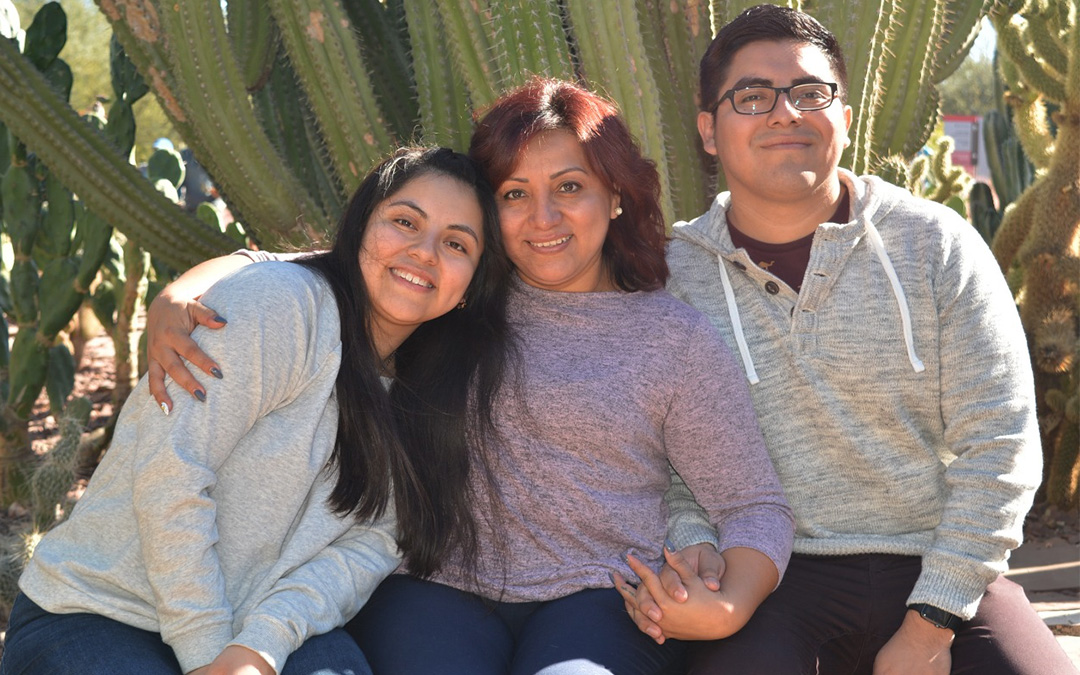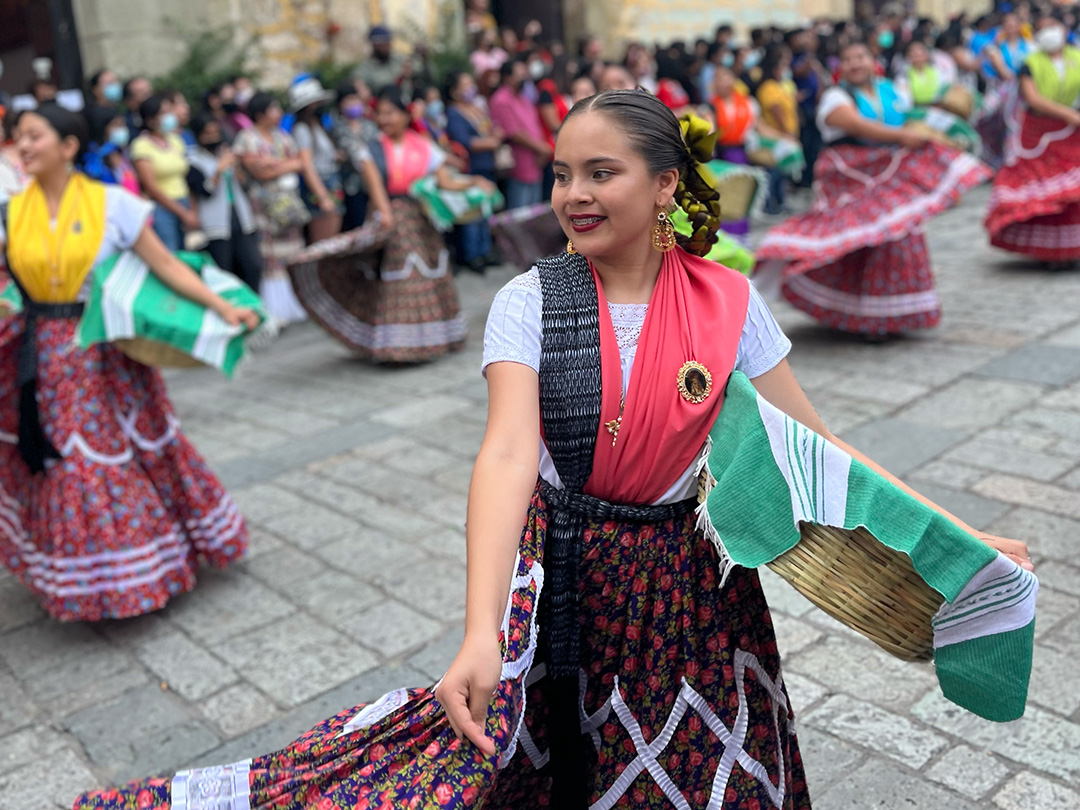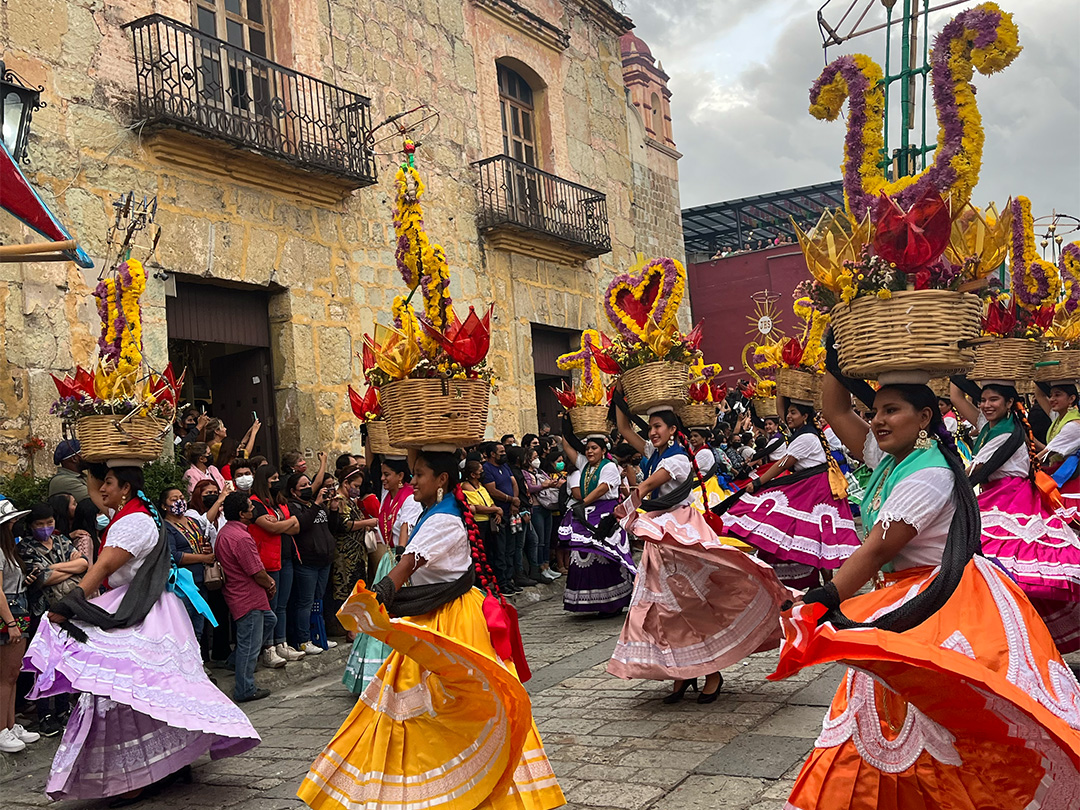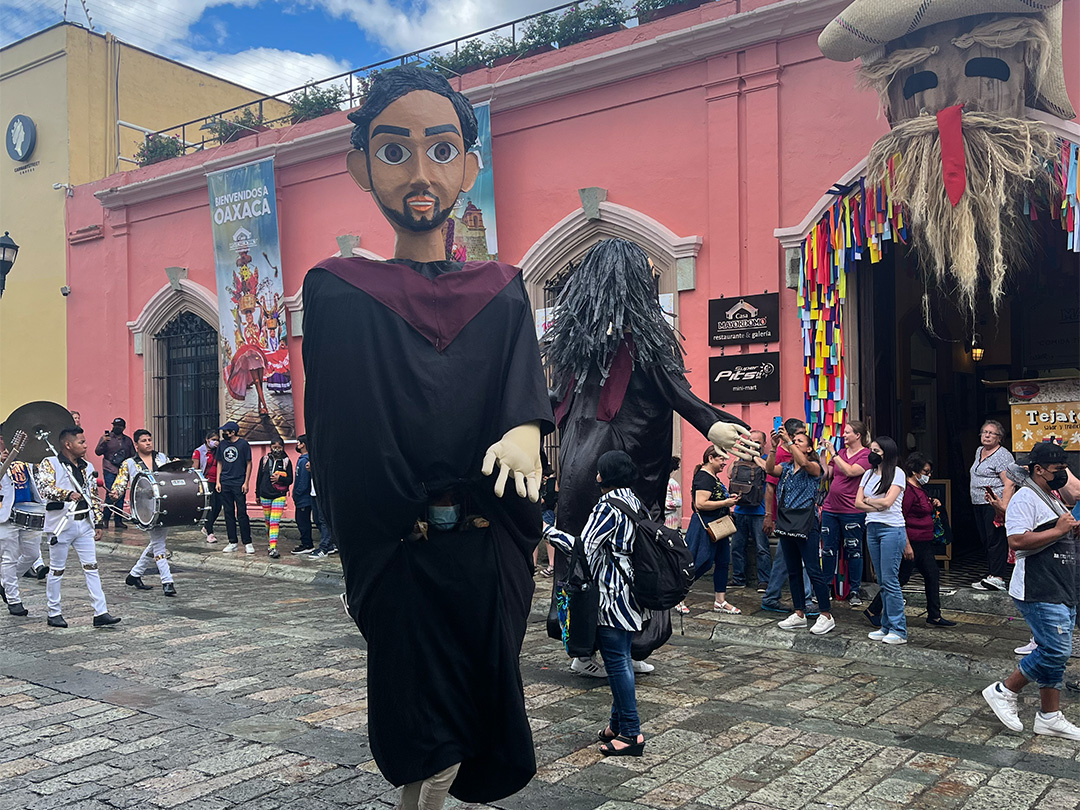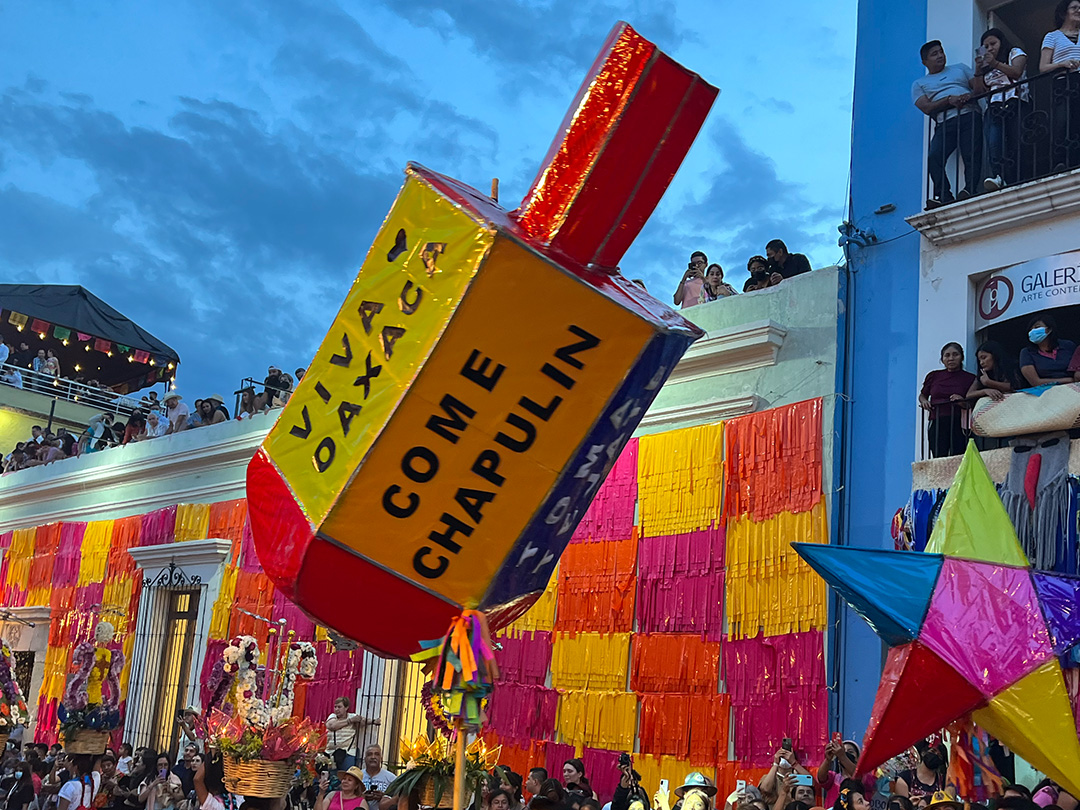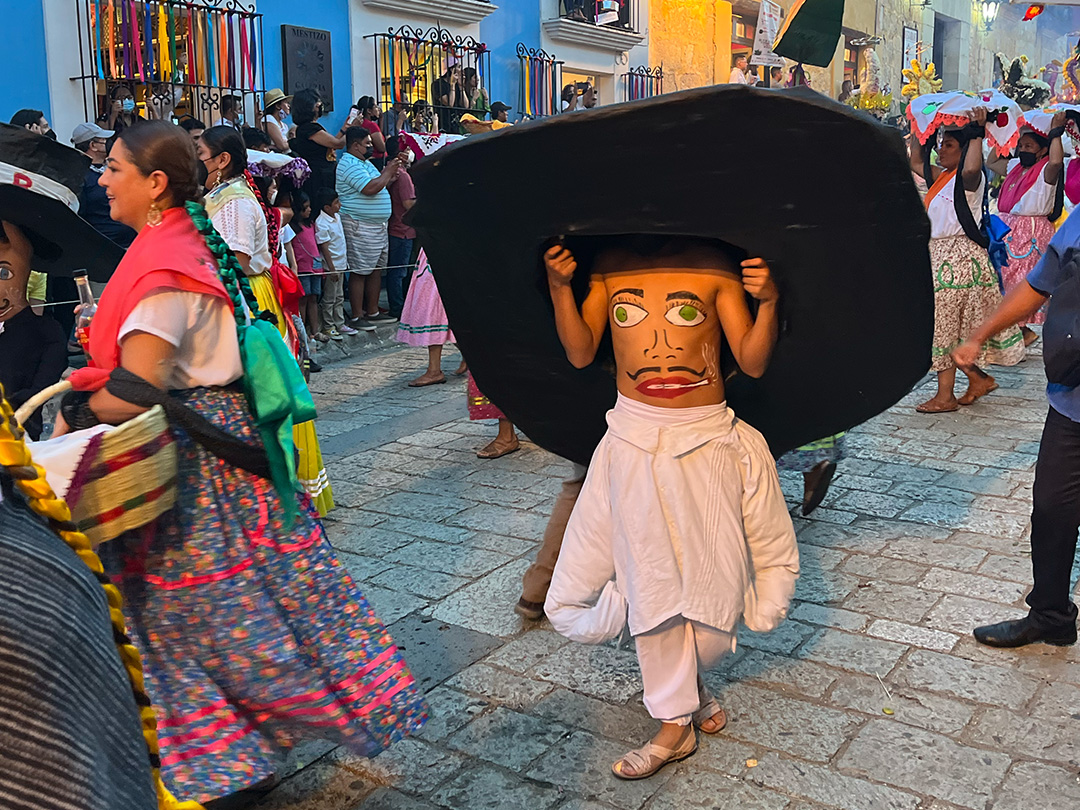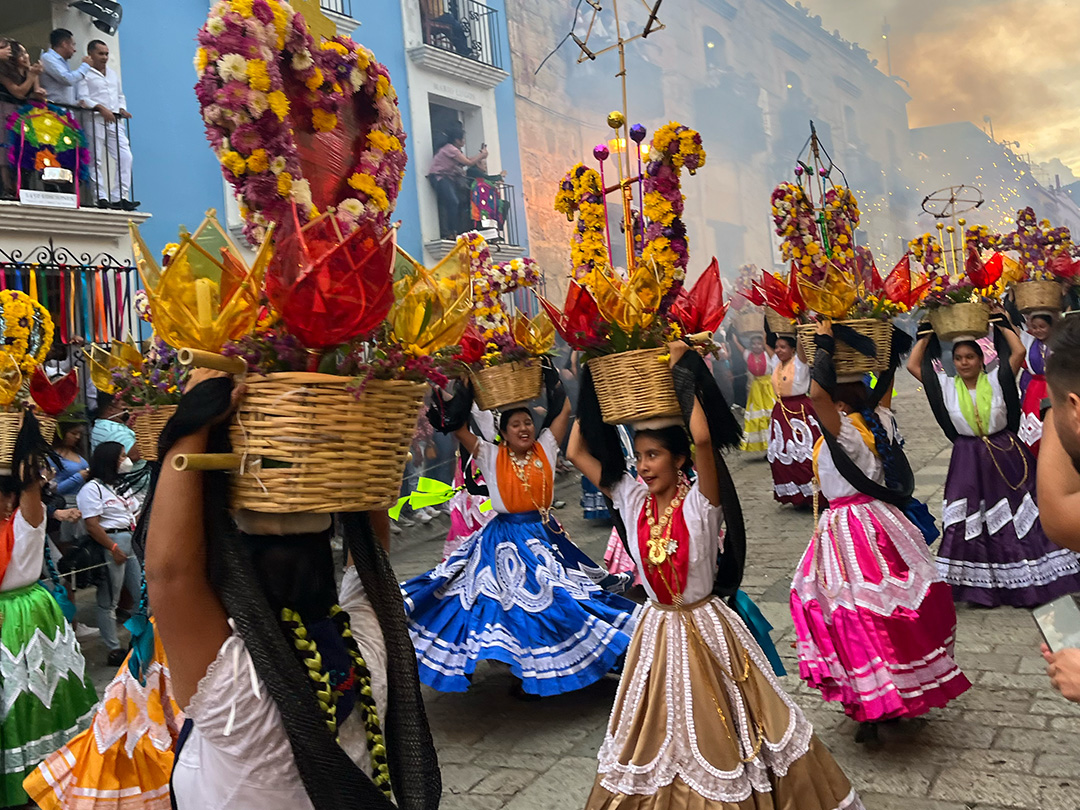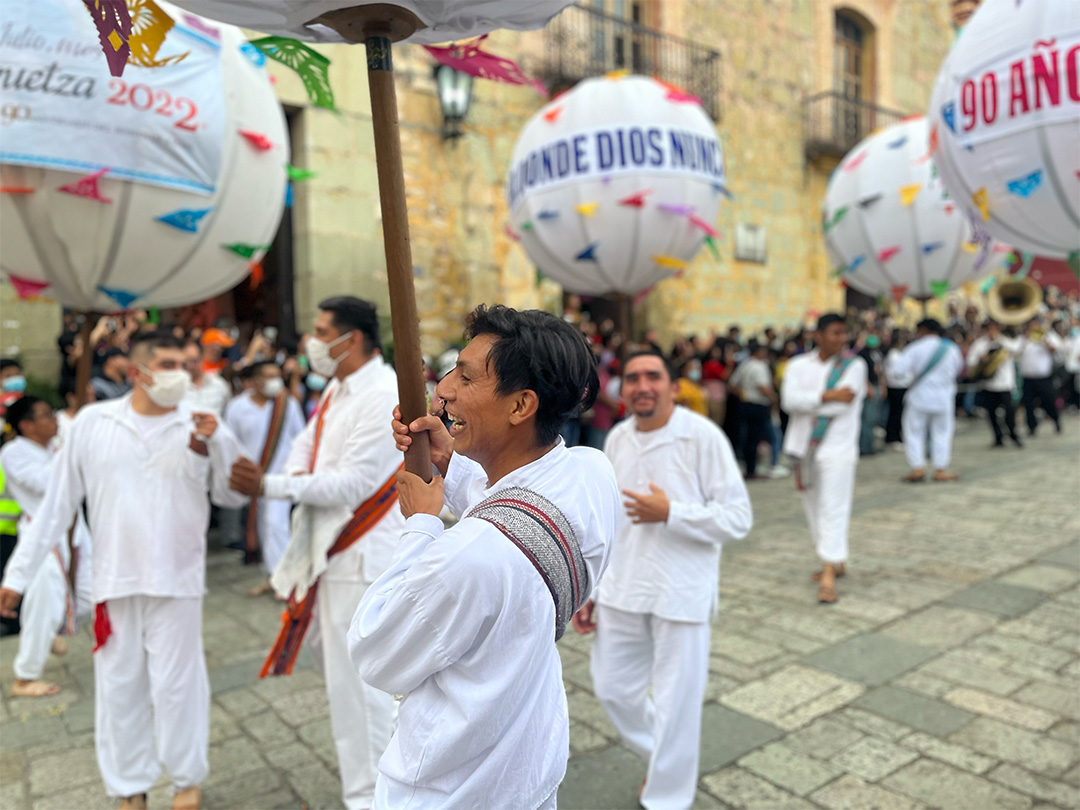Photo: Rebeca Santiago (left), Elizabeth Hernández (center), Ricardo Santiago (right)
The Garden will host a dazzling Guelaguetza festival for the first time ever. This cultural festival hails from Oaxaca, Mexico and it is held every summer to celebrate the diverse culture of Oaxaca through music, dance, food, and drink.
Ricardo Santiago and his mother Elizabeth Hernández have hosted two Guelaguetza events in the Valley and a private Oaxacan dinner at the Garden in 2020. This year, they have partnered with the Garden to bring the colorful festival here. Elizabeth owns Las 15 Salsas in West Phoenix with traditional Oaxacan dishes. Elizabeth and Ricardo’s passion to host these events stem from sharing their traditions and culture with the community. There is a large Oaxacan community in North Phoenix.
Learn more about Guelaguetza from Ricardo Santiago.
Q. What is Guelaguetza?
A. “Guelaguetza means gift or offering, derived from the Mexican indigenous language Zapotec.
It is one of the most important holidays in the Mexican state of Oaxaca. The colorful festival takes place every July.
The origin of the holiday began more than 3,000 years ago as a celebration of the Oaxacan corn goddess. Indigenous people cultivated plants to supplement hunting and fishing. The most important of these plants is maize, which was the basis of the Mesoamerican diet and remains so today. To ensure rainfall and bountiful harvest continue in their land, the communities would come together to honor the gods. The indigenous people dedicated this celebration to Centeotl, goddess of agriculture, to whom they offered gifts and feasts.
When Spanish colonizers arrived to Oaxaca in 1521, Catholic elements were incorporated into the holiday. For instance, the holidays, also known locally as the Lunes del Cerro (Mondays on the Hill), were set on mid-July to coincide with the day of Our Lady of Mount Carmel.
What started as a ritual for the gods is now a celebration of Oaxaca’s eight culturally diverse regions.
Q. Why is it important?
A. “The uniqueness of this celebration consists in the social gathering of Oaxaca’s eight regions: Los Valles Centrales, La Cañada, La Mixteca, La Costa, El Istmo de Tehuantepec, La Sierra and La Región del Alto Papaloapan.
Representatives from each region gather together every year wearing their traditional costumes to dance, sing and provide gifts to the crowds as a form of community bond between the different regions and cultures.
For Oaxaca residents the festival is a reminder of the rich cultural heritage of the different ethnic groups across the state.”
Q. How is the festival celebrated in Mexico?
A. “The festival consists of a parade of dances performed by dancers of each region. The dancers wear custom attire and presents a traditional dance. Food is also another important aspect to the celebration. Participants bring their delicious cuisine, including Mexico’s nationally recognized mole and mezcal tastings. Artisans bring their art and cultural crafts, like pre-Hispanic style textiles.”
Q. How are you helping coordinate the event at the Garden?
A. “Our contribution to the Garden’s Guelaguetza is to provide an authentic experience and bring cultural awareness of Oaxaca to the Valley.
We are creating community and bringing a sense of home to many families here who can’t go back to their native towns for various reasons.
Promoting this event through cultural performance helps us stay connected with our traditions and culture. We feel proud of where we come from. It gives a sense of home here in Arizona.”
Tickets for Guelaguetza on Oct. 1-2 are now available at dbg.org and included with general admission.
